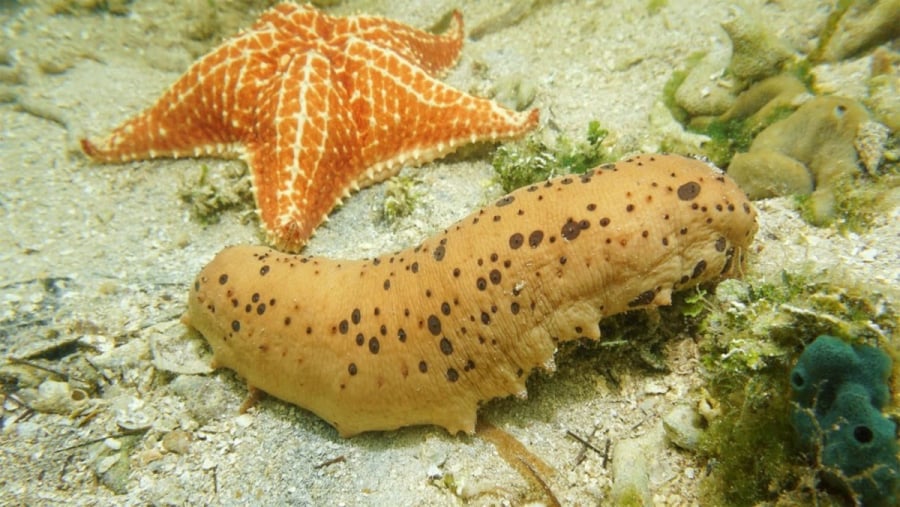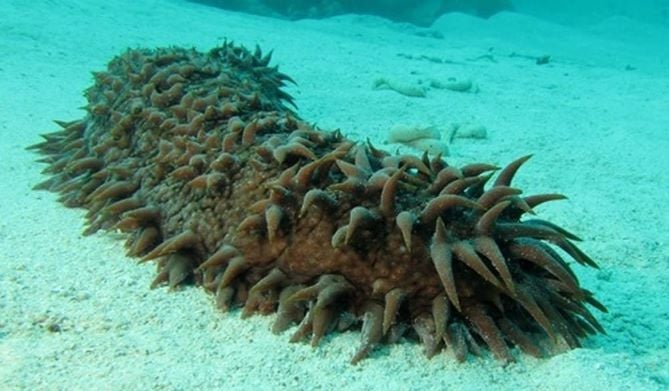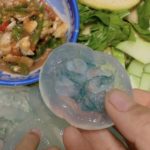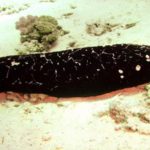The Wonders of Sea Cucumbers
In the deepest depths of the ocean, where sunlight cannot penetrate, lies a small yet enigmatic creature – the sea cucumber. With its soft, cucumber-like appearance, sea cucumbers are not only a valuable food source but also hold a wonder: they lack a brain yet survive and perfectly adapt to their harsh environment. How do they achieve this? Is there something we can learn from this unique creature’s “strategy” for living?
Food-Finding Mechanism Without a Brain
Network Nervous System: A Simple Yet Effective “Controller”
Instead of possessing a complex brain, sea cucumbers operate through a network nervous system, spread throughout their body. According to Dr. Emily Carter, a marine biologist at the University of California, “The network nervous system allows sea cucumbers to sense chemical stimuli in the water, such as the smell of food, and react immediately without central processing.”
When coming into contact with food, such as organic particles or floating microorganisms, the sea cucumber’s tentacles contract to draw the food into its mouth. This is a completely automatic process that doesn’t require thought or decision-making.

Sensory Cells: Distributed “Eyes” and “Nose”
Sensory cells scattered across the sea cucumber’s body act as versatile “sensors.” They detect the smallest organic particles in the water and transmit signals to the network nervous system. Thus, even without a brain, sea cucumbers can “read” their surroundings.
Random Yet Efficient Movement
Sea cucumbers move slowly along the seabed by contracting their bodies or simply drifting with the current. Their food-finding method can be considered a “trial and error” approach, but in a nutrient-rich environment, this strategy proves highly effective. A 2022 study in Marine Biology revealed that sea cucumbers can consume up to 90% of the organic matter in their habitat.
Danger-Avoiding Mechanism: Automatic Reflexes
Brainless Defense Reflexes
Lacking a brain also means sea cucumbers never “worry” about danger. Instead, they rely on automatic reflexes for protection. For instance, when touched, they quickly contract their bodies or eject water to distract predators.
According to Professor Mark Johnson, a marine ecology expert at the Woods Hole Oceanographic Institution, “Sea cucumbers’ defense reflexes are a result of long-term evolution in a high-pressure environment.” Their specialized sensory cells can detect slight changes in water pressure or the presence of predators.

Self-Amputation and Regeneration
Some sea cucumber species can even detach a part of their body to escape predators. Incredibly, they fully regenerate the lost portion within a few weeks. This clearly demonstrates the extraordinary adaptability of this creature.
Comparison with Brained Species
Unlike humans and many other vertebrates, sea cucumbers don’t require a complex brain to survive. Their simple nervous system is flexible enough to meet basic needs: finding food and avoiding danger.
However, this advantage comes with a trade-off. Sea cucumbers lack the ability to learn or solve complex problems, which brained species excel at. Yet, this very simplicity has allowed them to persist for hundreds of millions of years, becoming a testament to sustainable evolution.
Lessons From Sea Cucumbers
Sea cucumbers teach us that life doesn’t necessarily depend on complex systems. Sometimes, simplicity and adaptability are the keys to survival. Studying sea cucumbers not only enhances our understanding of the natural world but also unlocks new potential in medicine and biotechnology.
Have you heard of other creatures with similar extraordinary survival abilities? If you find this article informative, don’t forget to share it with others who appreciate science and nature!
The Delicious and Nutritious World of Edible Sea Cucumbers: Exploring the Ocean’s Superfood
Introducing the ultimate superfood – sea cucumber. This humble creature is a nutritional powerhouse, packed with essential vitamins and minerals that can boost your health and well-being. With its unique blend of nutrients, sea cucumber has been used in traditional medicine for centuries and is now gaining recognition as a modern-day superfood. Read on to uncover the fascinating benefits of this aquatic delicacy and discover why it deserves a place on your plate.




































